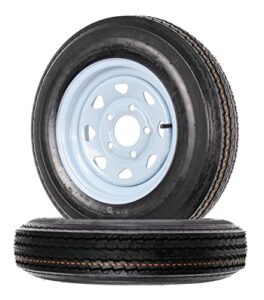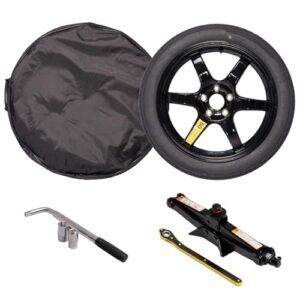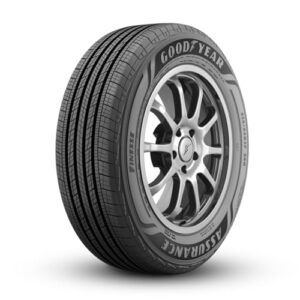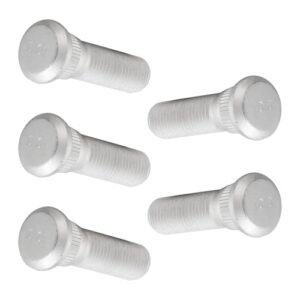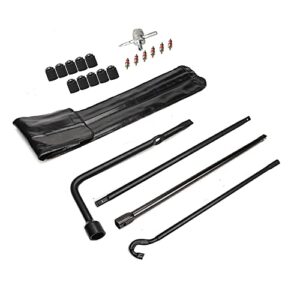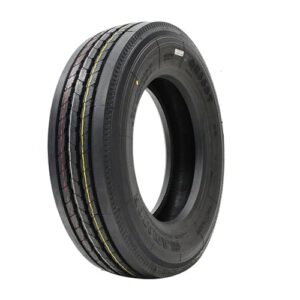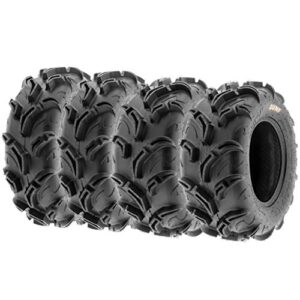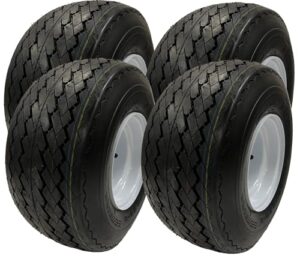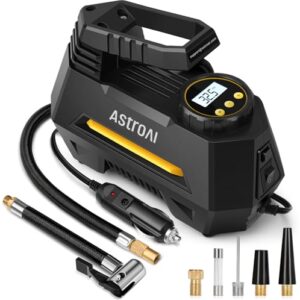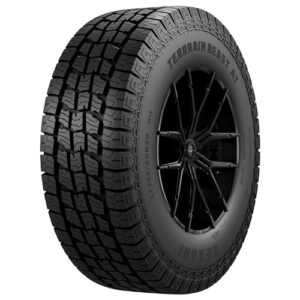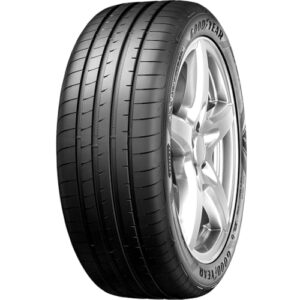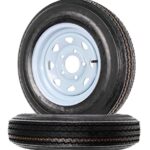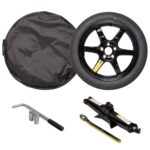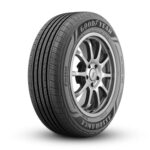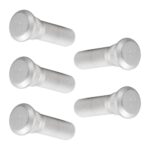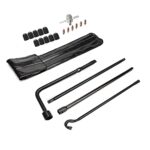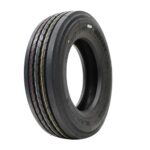Choose the right tyre for your car by considering vehicle type, driving conditions, and the tyre’s size, tread pattern, and performance characteristics. Prioritize the manufacturer’s recommendations and check the tyre’s ratings for load, speed, and wear.
Selecting the appropriate tyre for your vehicle is essential for safety, performance, and fuel efficiency. The process involves a blend of understanding your driving habits and the specifications suited for your car’s make and model. Tyres come in various types, including all-season, performance, and winter tyres, each designed to cater to specific driving conditions and climates.
Ensuring you match the tyre size and load capacity listed in your car’s owner manual maintains the vehicle’s intended handling and safety features. A well-chosen tyre can significantly enhance your driving experience by providing better grip, comfort, and longevity, underscoring the need for making an informed decision. With the right balance of quality and features, the tyres you choose will play a crucial role in your car’s overall performance. Remember to always compare tyre labels which display fuel efficiency, wet grip, and noise levels – key factors in making a smart purchase.

Introduction To Tyres And Their Importance
Tyres bridge your car to the road. Think of them as the shoes for your vehicle. Choosing the right tyre means ensuring safety, enhancing performance, and getting the most out of your vehicle. It’s about more than just rubber; it’s about finding the perfect fit for your journey.
The Role Of Tyres In Vehicle Safety
Tyres determine your car’s grip on the road. They affect how well your car stops and steers. Good tyres mean better safety. They reduce risks in wet and dry conditions. It’s a simple connection: Better tyres, safer travels.
Impact Of Tyres On Performance
Tyres also shape your car’s performance and fuel efficiency. The right tyres can glide smoothly and use less petrol. They back your car’s ability to take on sharp turns and sudden stops. Your tyres’ quality tells a story of your car’s potential on the road.
Types Of Tyres
Selecting the perfect set of tyres is crucial for your car’s performance and safety. You will find a wide array of tyres, each crafted to meet distinct driving environments and preferences. Let’s dive into the different types to help you make an informed decision.
Seasonal Variations: Summer Vs Winter
Summer and winter tyres respond differently to various road conditions.
- Summer tyres offer optimal grip and performance in warm conditions.
- They boast a harder compound to resist high temperatures.
- Winter tyres shine in cold, icy, or snowy conditions.
- They feature special tread patterns and soft rubber compounds to maximize traction.
The right choice depends on your region’s climate. Consider switching tyres with seasons.
Specialty Tyres: Off-road And Performance
| Type | Features | Best For |
|---|---|---|
| Off-Road Tyres | Deep treads, reinforced sidewalls | Uneven terrain, rocky surfaces |
| Performance Tyres | Sticky rubber, low profile | High-speed driving, tight corners |
Enthusiasts may prefer performance tyres for a better road feel. Adventurers should opt for off-road tyres for durability in tough terrains.
Understanding Tyre Specifications
Selecting the right tyre is crucial for ensuring your vehicle’s performance and safety. Every tyre comes with specific codes that tell you everything you need to know about its capabilities. Let’s decode these specifications together to help you make an informed choice for your car.
Reading The Tyre Code: Size, Load, And Speed
The tyre code, imprinted on your tyre’s sidewall, is a mix of numbers and letters. It provides vital information on the tyre’s size, load rating, and speed capability. Here’s how to read it:
- Size: It’s the first thing you’ll see, represented by a set of numbers such as
205/55R16. The first number is the tyre’s width in millimeters. The next number is the tyre’s height-to-width ratio as a percentage. The letter ‘R’ indicates radial construction, and the last number is the wheel’s diameter in inches that the tyre fits. - Load: Following the size, there might be a two or three-digit number. This is the load index which refers to the maximum weight each tyre can carry. A higher number means a higher load capacity.
- Speed: The speed rating is usually a single letter, like ‘T’ or ‘V’, which indicates the maximum speed that the tyre can safely handle when fully loaded.
The Importance Of Tyre Tread For Safety
Why does tyre tread matter? The tread design of your tyre is critical for maintaining grip on the road, especially during challenging conditions like rain or snow.
Tread depth also plays a key role in safety. Over time, tyres wear down and lose their tread depth. This can lead to increased stopping distances and a greater risk of aquaplaning. It’s important to choose a tyre with the right tread pattern and depth to match your typical driving conditions.
| Tread Type | Benefits |
|---|---|
| Directional | Great water clearance |
| Symmetric | Quiet and comfortable |
| Asymmetric | Good grip in various conditions |
Regularly check your tyre tread to ensure they are within legal limits and replace when necessary to maintain optimal performance and safety.

Vehicle And Tyre Compatibility
Selecting the perfect tyres for your car may seem daunting. It is vital to find tyres that match your vehicle’s needs. Proper tyre selection boosts performance, safety, and fuel efficiency. Let’s explore this in detail.
Matching Tyres To Your Vehicle’s Requirements
It is crucial to ensure that your replacement tyres meet your vehicle’s specifications. Tyre specs are found on the sidewall and in the owner’s manual. It is important to understand these specs:
- Size: These numbers define tyre size, ensuring a snug fit with no alterations.
- Load index: This number shows the maximum weight a tyre can support.
- Speed rating: This letter indicates the highest speed your tyre can handle safely.
Follow the manufacturer’s recommendations precisely to avoid issues.
The Consequences Of Incompatible Tyres
Choosing wrong tyres leads to multiple problems. These issues not only affect performance but also safety:
| Issue | Consequence |
|---|---|
| Wrong Size | Results in poor handling and may damage the vehicle’s structure. |
| Incorrect Load Index | Increases the risk of tyre blowouts, especially when overloaded. |
| Inadequate Speed Rating | Can lead to tyre failure if the vehicle operates beyond the tyre’s capacity. |
Ensure compatibility to keep your vehicle running smoothly and safely.
Driving Habits And Tyre Selection
Driving habits play a crucial role in tire selection for your car. Your tyres bridge the gap between your vehicle and the road. They need to handle the stress of your daily drives. Whether you’re navigating through city streets or cruising on highways, choosing the right tyre is essential for a safe, comfortable, and economical ride.
Tailoring Your Tyres To Your Driving Style
Your driving style impacts your tyre choice. Aggressive drivers need tyres with excellent grip and rapid steering response. Comfort-seekers benefit from tyres designed for a smooth and quiet ride. Consider these factors:
- Grip: High-performance tyres suit spirited drivers.
- Longevity: Those prioritizing durability should seek long-lasting tread compounds.
- Comfort: Soft rubber compounds absorb road imperfections, enhancing comfort.
How Commuting Patterns Influence Tyre Choice
Commuting patterns shape your tyre needs. Drivers with a long daily commute need tyres that offer durability and fuel efficiency. Urban drivers face stop-and-go traffic and need tyres with a strong build to resist wear. Consider the following:
| Type of Commuting | Recommended Tyre Feature |
|---|---|
| Highway Driving | Fuel-efficient, low rolling resistance tyres |
| Urban Driving | Durable tyres with reinforced sidewalls |
| Mixed Use | All-season tyres for varied conditions |
Climate Considerations
Choosing the right tyre for your car is essential for safety and performance. Climate plays a big role in this decision. Different regions experience varied weather conditions. Your tyres must handle these effectively.
Choosing Tyres For Wet Conditions
Tyres designed for wet conditions ensure superior grip on water-logged roads. These tyres feature deep treads that channel water away, reducing the risk of hydroplaning.
- All-season tyres: Offer balanced performance in various wet and dry conditions.
- Winter tyres: Provide extra traction in colder, wet environments.
- Summer tyres: Work best in warm, wet climates with frequent rainfalls.
Understanding The Impact Of Temperature On Tyre Performance
Temperature significantly affects how your tyres perform. Cold weather can harden tyre compounds, reducing grip. Hot weather can lead to overheating and increased wear.
| Temperature Range | Tyre Type | Performance |
|---|---|---|
| Below 7°C | Winter Tyres | Stay soft and grippy |
| Above 7°C | Summer Tyres | Optimized for dry and wet roads |
| All Ranges | All-Season Tyres | Good all-year performance |
Check your local climate trends and temperature fluctuations before selecting your tyres. This ensures optimal performance and safety for your vehicle year-round.
Tire Brands And Reputation
Choosing tyres is not just about the size or type. The brand of the tyre plays a crucial role too. A good brand can mean a longer-lasting and safer experience on the road. Let’s explore the top tyre manufacturers and understand brand significance.
Reviewing Top Tyre Manufacturers
- Michelin: Known for performance and longevity.
- Bridgestone: Offers a wide range of options.
- Goodyear: Innovative with good wet traction.
- Continental: Focuses on fuel efficiency and comfort.
- Pirelli: Popular for high-end sports cars.
Michelin often tops the list with their tyres’ high quality and durability. Bridgestone and Goodyear come next with a broad catalogue and technological advancements. Continental tyres shine in safety tests and Pirelli tyres are preferred for performance vehicles.
The Significance Of Brand In Tyre Durability And Quality
Brand matters. It’s the result of consistent quality and innovation. Established tyre brands invest in technology to make products safe and durable. Here’s how brand impacts your tyres:
| Brand Aspect | Impact on Tyres |
|---|---|
| Research and Development | New tyres are born, ensuring safety and longevity. |
| Quality Materials | Better grip, less wear, and great performance. |
| Testimonials | Real-world feedback confirms reliability. |
| Warranty | A promise that the brand stands behind its tyres. |
Choosing a brand is crucial for durability and safety. A reputed brand invests in the research and uses high-quality materials. These factors lead to a tyre that could ultimately save lives on the road. Always check testimonials and the warranty offer; they are strong indicators of a brand’s confidence in their tyres.

Budgeting For Tires
Choosing the right tyre for your car needs careful budget consideration. The price of tyres varies and affects both your wallet and safety. Let’s dive into the balance between cost and quality. We will find ways to save money in the long run.
Cost Vs Quality In Tyre Purchasing
Cheap tyres can be tempting, but they might not offer the best performance or lifespan. Quality matters and often determines how often you’ll need replacements. Consider the following points when budgeting:
- Assess your driving habits and road conditions you frequently encounter.
- Compare tyre features like tread life, fuel efficiency, and grip.
- Read reviews and ratings from other drivers and experts.
It’s not always about the upfront cost. Think about value; a higher initial price might lead to fewer purchases over time.
Long-term Savings: Investing In Premium Tyres
Premium tyres come at a higher price, but for a good reason. They offer improved safety, better mileage, and longevity. Here’s how investing in them can save money:
| Premium Tyre Benefits | Long-term Impact |
|---|---|
| Enhanced durability | Less frequent replacements needed |
| Better fuel economy | Money saved on fuel over time |
| Superior performance | Reduced risk of accidents |
High-quality tyres might look like a big expense now. But they pay off by improving your car’s efficiency and reducing future tyre costs. Do the math and consider the potential savings from a longer-lasting, higher-performing tyre.
Where To Buy Tyres
Deciding on where to purchase tyres can influence both cost and quality. This guide helps car owners make smart choices. From local retailers to online stores, various options exist. Evaluate factors such as convenience, price, and services before buying.
Local Vs Online Tyre Retailers
Choosing between local and online tyre shops is crucial. Local retailers offer a hands-on experience. You can talk to experts and see tyres firsthand. Online retailers often provide better deals and a wider selection. Yet, you miss out on the personal touch.
| Local Retailers | Online Retailers | |
|---|---|---|
| Convenience | In-person service | Shop from home |
| Price | Competitive | Often lower |
| Expertise | Direct advice | Online support |
| Selection | Limited stock | Extensive choices |
Evaluating Tyre Installation Services
Check installation services when you buy tyres. A great price can come with hidden costs. Consider installation quality and guarantees. Reputable providers ensure proper fitting and wheel balancing. Look for included services like alignment checks.
- Check for transparent pricing.
- Ask about included services.
- Ensure technicians are certified.
- Question the time taken for installation.
- Inquire about warranties and follow-ups.
Some retailers offer perks like free rotation and puncture repairs. Value these benefits when comparing total costs. A full-service retailer might save money and time over the tyre’s life. Make a well-rounded decision on tyre purchases.
Maintenance And Care For Longevity
Ensuring your car’s tyres last long starts with regular maintenance and care. Adopting a routine for tyre checks and understanding the best ways to store spare tyres are essential. Below, find expert tips to keep tyres in top shape and get the most out of your investment.
Routine Checks And Balancing
- Examine tyre pressure monthly: Use a gauge to check that each tyre, including your spare, matches the pressure recommended in your vehicle’s manual.
- Look for signs of wear or damage: Check for any cuts, bulges, or irregular wear patterns.
- Rotate tyres regularly: This ensures even wear. Aim for every 5,000 to 7,000 miles.
- Balance your tyres after rotation: Tyre balancing minimizes vibrations and extends tyre life.
Proper Storage Tips For Spare Tyres
- Keep it clean: Clean the tyre with soap and water before storage.
- Store in a cool, dry place: Avoid areas with direct sunlight or high temperatures.
- Avoid exposure to oils or chemicals: These substances can degrade rubber over time.
- Position correctly: Store your spare tyre upright, if possible.
- Check the spare’s condition quarterly: Ensure it’s ready for use when needed.
When To Replace Your Tyres
Knowing when to replace your tyres is crucial for your car’s performance and your safety. Tyres are the only point of contact between your vehicle and the road. Driving on old or worn tyres can lead to decreased traction, poor handling, and even blowouts. Let’s dive into how to spot the signs that it’s time for a change.
Signs Of Wear And Tear
- Tread Depth: Use a tread depth gauge or check the tread wear indicator bars.
- Uneven Wear: Look for patterns or bald spots on the tyre.
- Damage: Inspect for cuts, bulges, or punctures on the tyre surface.
- Vibration: Feel unusual vibrations? Your tyres might be the reason.
- Age: Tyres older than five years need regular checks.
Understanding Tyre Lifespan
Tyre lifespan varies with driving habits, road conditions, and tyre care. Most manufacturers suggest replacing tyres every 6 years, no matter the mileage. Always refer to your car’s manual and keep an eye on the manufacture date on the tyre sidewall.
| Factor | Effect on Lifespan |
|---|---|
| Driving style | Aggressive driving shortens tyre life. |
| Maintenance | Regular rotation and alignment prolong life. |
| Storage | Proper storage prevents premature aging. |
| Climate | Extreme temperatures can accelerate wear. |
Insider Tips For Tyre Shopping
An intriguing journey into the world of tyre shopping can turn bumpy without the right know-how. Arming yourself with insider tips not only smoothens the ride but also steers you towards spectacular savings and optimal choices for your car. Get ready to grasp the essentials of tyre purchasing with practical strategies and a keen eye for avoiding traps.
Negotiating The Best Deals
Embarking on the quest for new tyres means there’s room to negotiate. Prices might seem fixed, but there’s often flexibility.
- Research tyre prices online before visiting stores.
- Ask about price matching and don’t shy from haggling.
- Look out for promotions and rebates.
- Consider last year’s models for potential discounts.
Remember, a compelling deal balances quality with affordability.
Common Pitfalls To Avoid
Awareness of the common traps can safeguard your investment and driving experience.
- Never assume all tyres are the same.
- Avoid buying used tyres without expert evaluation.
- Ensure the tyres match your car’s size and specs.
- Check warranties and understand what they cover.
Keep these pitfalls in check to maintain safety and performance.
Frequently Asked Questions
What Factors Determine The Best Car Tyre?
Choosing the right tyre depends on vehicle type, tyre size, driving style, and the local climate. These factors ensure compatible performance and safety.
How Does Driving Style Affect Tyre Selection?
Aggressive driving requires tyres with high grip levels and heat resistance. For everyday commuting, durability and fuel efficiency are primary considerations.
What Tyre Types Suit Different Weather Conditions?
All-season tyres work well in varied conditions, while summer tyres excel in warm, dry climates. Winter tyres are essential for snow and ice.
Can Tyre Tread Pattern Impact Driving?
Yes, the tread pattern affects water displacement, road grip, and noise levels. Specific patterns enhance performance in wet, dry, or off-road conditions.
Conclusion
Selecting the right tyres is a key decision for any car owner. Remember to match your choice to your driving habits and conditions. Quality and safety should be top priorities. For more advice, revisit our comprehensive guide. Drive safe and enjoy the ride with the perfect tyres for your vehicle.




